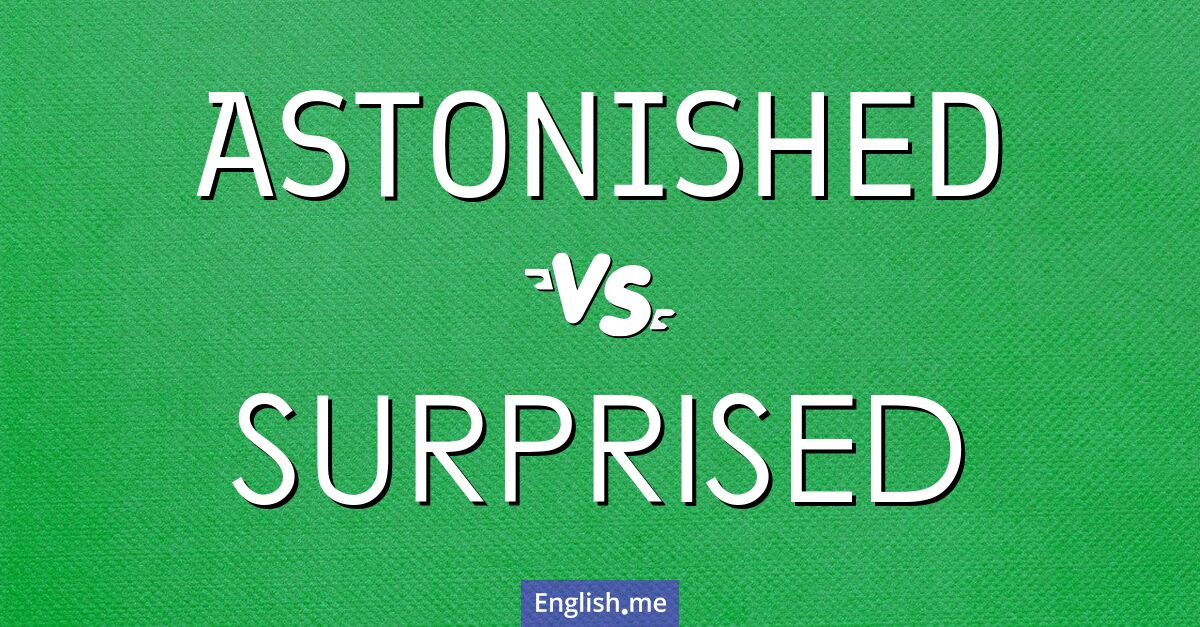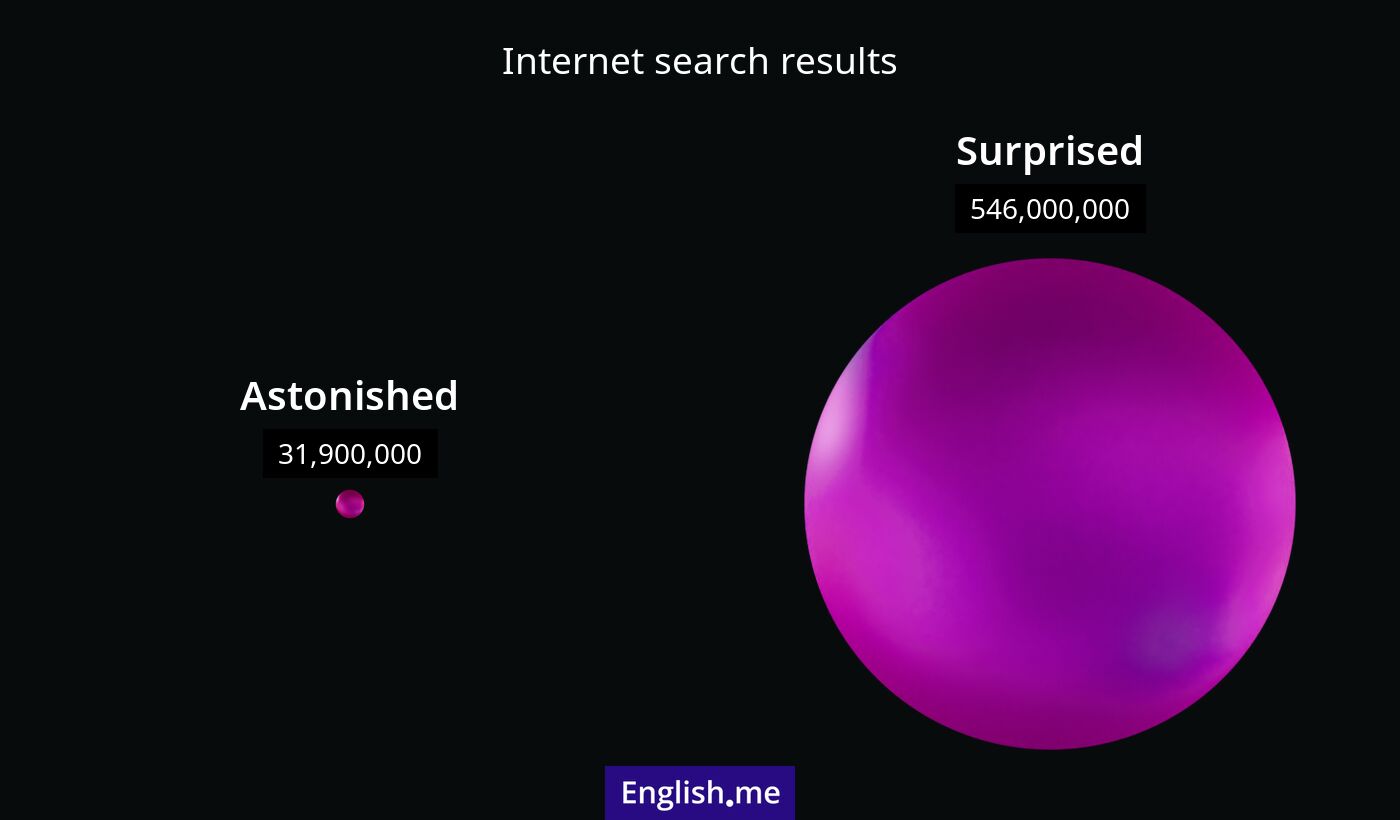"Astonished" vs. "surprised": nuances of delight and disbelief
Reviewed and edited by  Lloyd Cooper 01/10/2024, 02:46
Lloyd Cooper 01/10/2024, 02:46
English.me team member

 What is similar?
What is similar?
Both "astonished" and "surprised" describe a reaction to something unexpected or unusual.
 What is different?
What is different?
"Astonished" implies a stronger, more overwhelming sense of disbelief compared to "surprised", which is milder and more common.
 Which one is more common?
Which one is more common?

 Examples of usage
Examples of usage
Astonished- She was astonished by the magician's tricks.
- We were astonished to find out we had won the lottery.
- He was surprised to see her at the party.
- I was surprised by how quickly the time passed.

 English
English español
español française
française italiano
italiano deutsche
deutsche 日本語
日本語 polski
polski česky
česky svenska
svenska Türkçe
Türkçe Nederlands
Nederlands